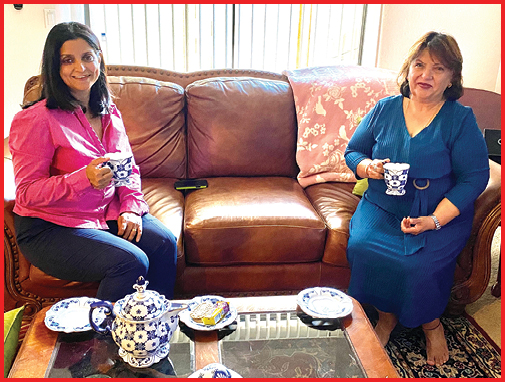Chai With
Chai With… Dr. Mandeep Rai, Infectious Disease Consultant 01 May 20  With COVID-19 all over the news and on people’s mind, we thought it would be good to have a virtual conversation with Dr. Mandeep Rai, an Infectious Disease consultant to help educate our community on what all the news mean and how they can keep themselves safe. |


